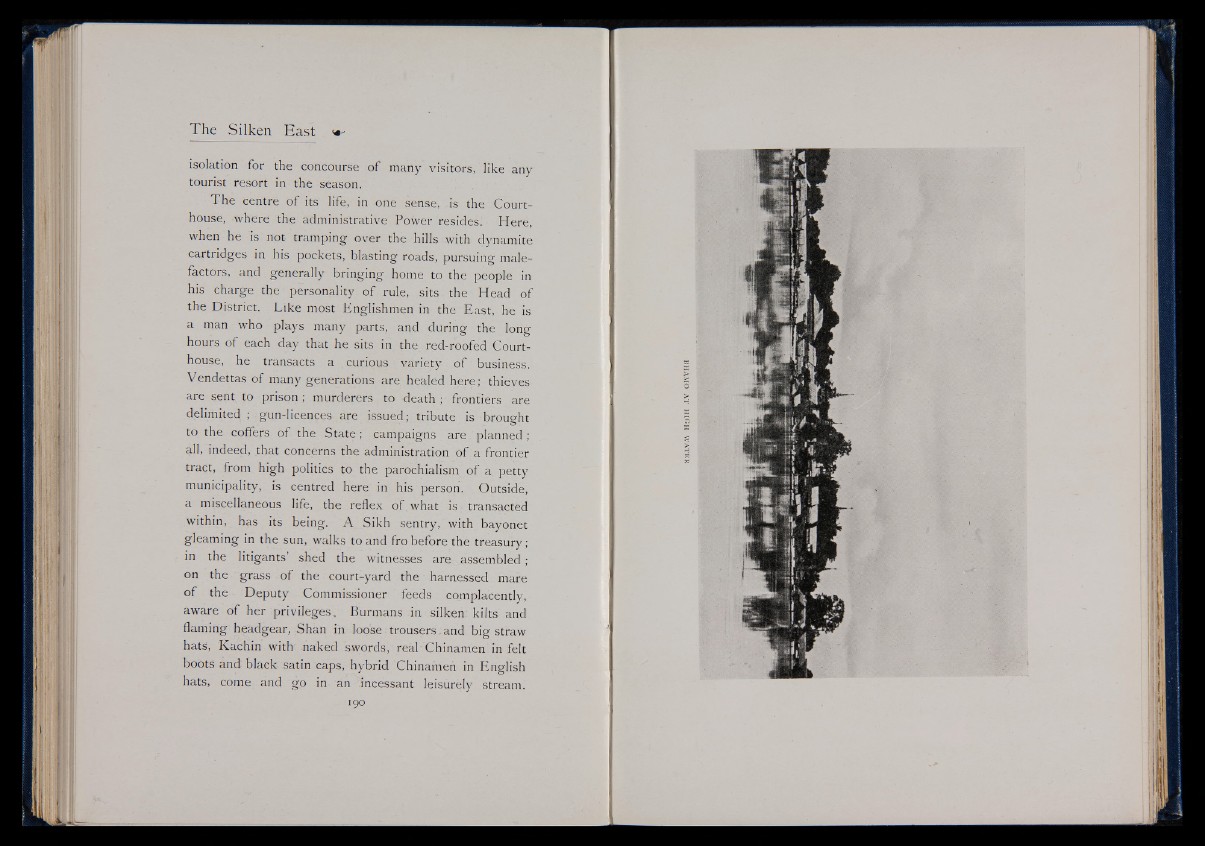
isolation for the concourse of many visitors, like any
tourist resort in the season.
The centre of its life, in one sense, is the Courthouse,
where the administrative Power resides. Here,
when he is not tramping over the hills with dynamite
cartridges in his pockets, blasting roads, pursuing malefactors,
and generally bringing home to the people in
his charge the personality of rule, sits the Head of
the District. Like most Englishmen in the East, he is
a man who plays many parts, and during the long
hours of each day that he sits in the red-roofed Courthouse,
he transacts a curious variety of business.
Vendettas of many generations are healed here; thieves
are sent to prison; murderers to death ; frontiers are
delimited; gun-licences are issued; tribute is brought
to the coffers of the State; campaigns are. planned ;
all, indeed, that concerns the administration of a frontier
tract, from high politics to the parochialism of a petty
municipality, is centred here in his person. Outside,
a miscellaneous life, the reflex of, what is transacted
within, has its being. A Sikh sentry, with bayonet
gleaming in the sun, walks to and fro before the treasury;
in the litigants’ shed the witnesses are assembled ;
on the grass of the court-yard the harnessed mare
of the Deputy Commissioner feeds complacently,
aware of her privileges, Burmans in silken: kilts and
flaming headgear, Shan in loose trousers.and big straw
hats, Kachin with naked swords, real Chinamen in felt
boots and black satin caps, hybrid Chinamen in English
hats, come and go in an incessant leisurely stream.
190